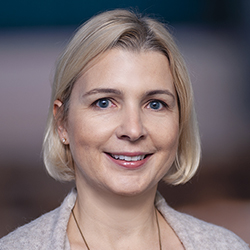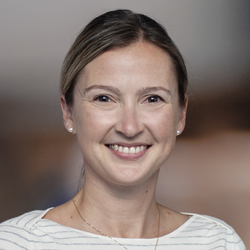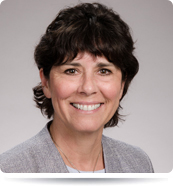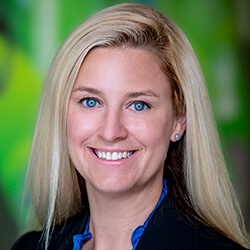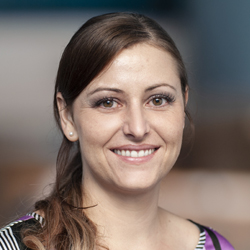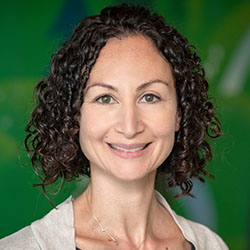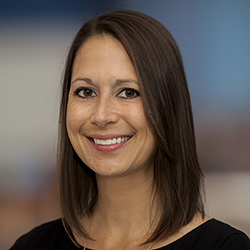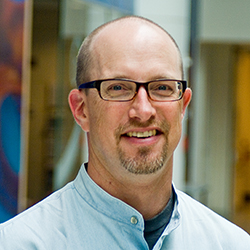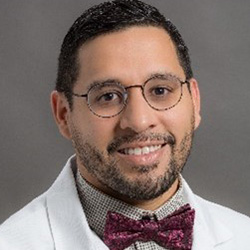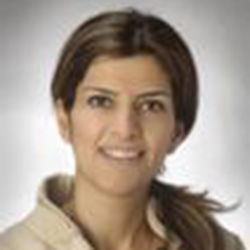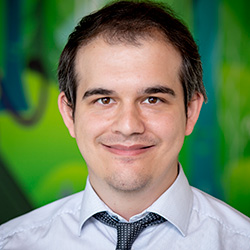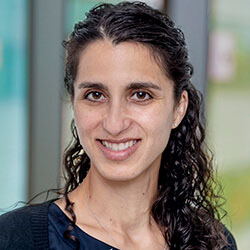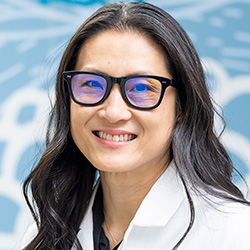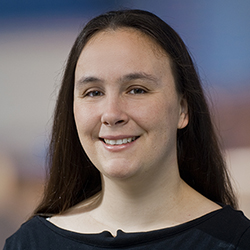Neonatal Neurocritical Care Unit (Neuro NICU)
What is the Neuro NICU?
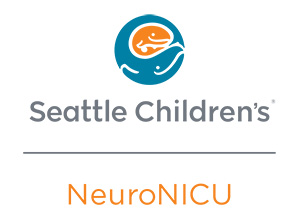 Seattle Children’s Neuro NICU is a special intensive care service in the hospital. It provides specialized brain-focused care for your baby if they are born with a neurological condition. It’s also for babies who may be at risk for a brain problem.
Seattle Children’s Neuro NICU is a special intensive care service in the hospital. It provides specialized brain-focused care for your baby if they are born with a neurological condition. It’s also for babies who may be at risk for a brain problem.
Our experts use advanced technologies to prevent and diagnose brain and nervous system problems. We provide leading-edge, evidence-based care to protect and heal your newborn’s brain and treat problems that start in their nervous system. When your baby is ready to leave the Neuro NICU, we connect you with follow-up care to help your baby reach their full potential as they grow and develop.
The Neuro NICU team takes care of:
- Newborns who have a condition diagnosed before birth (prenatally)
- Newborns who develop a neurological problem during delivery
- Newborns who develop a neurological problem after birth, such as babies who have complications from being born too soon
These babies are born elsewhere and transferred to our Neonatal Intensive Care Unit (NICU) right after birth to get the specialized care they need.
What’s special about the experience at Seattle Children’s?
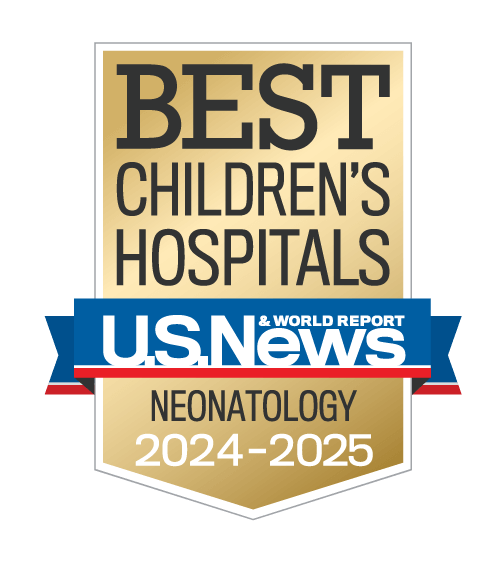 Seattle Children’s Neuro NICU is the only neonatal neurocritical care program in Washington, Wyoming, Alaska, Montana and Idaho.
Seattle Children’s Neuro NICU is the only neonatal neurocritical care program in Washington, Wyoming, Alaska, Montana and Idaho.
To provide the best prevention, diagnosis and treatment, our Neuro NICU is a collaboration. It combines experts from our Neonatology Program and Neurosciences Center. They work in partnership with UW School of Medicine, one of the country’s top medical schools for both pediatrics and research.
Our doctors are internationally known for their research to improve care for newborns who have neurological conditions or are at risk for brain injuries.
-
Team-based care from experts
- The Neuro NICU brings together a team of experts – neonatologists, neurologists, neurosurgeons and neuroradiologists – to provide specialized care for your baby.
- We involve other doctors and therapists from Seattle Children’s based on your baby’s exact needs. Your baby’s team may include members from the Epilepsy Program, Genetics, Interventional Radiology, the Neuromuscular Program, Rehabilitation Medicine, the Vascular Neurology Program and other clinics and programs.
- Care for you and your baby can begin even before birth with our Fetal Care and Treatment Center team. We make clear plans and help you and the rest of your team prepare for special medical care or surgery your baby may need after birth.
-
Advanced technologies for diagnosis and treatment
- The best neurocritical care for newborns relies on neurodiagnostic technology and neuroimaging. These allow us to see and understand what is happening in and around your baby’s brain.
- Seattle Children’s has this technology – including 24/7 continuous video EEG (electroencephalography), aEEG (amplitude-integrated EEG), 3T MRI (magnetic resonance imaging), MRS (magnetic resonance spectroscopy), NIRS (near-infrared spectroscopy) and bedside CT (computed tomography).
- Just as important, our experts have the knowledge and experience to read and interpret these advanced tests and scans when used with newborns.
- Our use of advanced technology extends to your baby’s transport and treatment too. We have the equipment and expertise to provide brain-focused care for your baby while bringing them to Seattle Children’s by ambulance or airlift (neonatal critical care transport) and to offer treatments like therapeutic hypothermia during the ride.
-
Support for your whole family
- At Seattle Children’s, your family has a full team behind you. Our goal is to get you and your baby home – or back to a hospital close to home – as soon as possible.
- Parents are key members of the team. We offer a comforting environment for you and your family, and we partner with you to make decisions and treatment plans for your baby.
- We work with many children and families from around the Northwest and beyond. We can help with financial counseling, housing, transportation, interpreter services and spiritual care.
-
Follow-up care custom-made for your child
- Neurological conditions at or near birth might have a lasting impact on your child’s development. Most babies don’t show signs of this yet when they are ready to leave the hospital. This is why we offer long-term follow-up care to watch for signs that may emerge later.
- Many conditions that cause lasting effects are rare, which means most doctors don’t see these conditions often. It’s important for your child to see pediatric experts who know what to look for and who can connect you quickly with the right treatment and support. After discharge, your child may be referred for ongoing care with our neurologists, neurosurgeons, rehab medicine providers, or other appropriate subspecialists.
- Seattle Children’s provides follow-up care at our hospital campus and at regional clinics to ensure your child gets the services they need after leaving the Neuro NICU. These services can include hearing assessments (audiology), nutrition, occupational therapy, physical therapy or psychology. Our neonatal neurologists work closely with our Infant Development therapy team to ensure follow up of your child.
- We’re experienced in supporting families who travel far from home to come here for follow-up. We also help families find care near where they live.
- We work closely with the Infant Development Follow-Up Clinic at UW Medical Center.
-
Improving neurocritical care through research
- Seattle Children’s Neuro NICU research means babies in our care can take part in studies of promising new treatments.
- Sandra (Sunny) Juul is a leader of 2 multicenter national studies. One study looked at using high doses of the erythropoietin (Epo) combined with body cooling to treat babies if their brains did not get enough oxygen at birth. (This study is called HEAL, High-dose Erythropoietin for Asphyxia and Encephalopathy.) The other study tested if Epo can reduce the negative effects that premature birth can have on the brain. (This is called PENUT, Preterm Epo Neuroprotection Trial.)
- Our physician-researchers study many ways to diagnose and treat neurological conditions. Their work includes research on hydrocephalus, treatment of seizures in the newborn, and ways to detect seizures, and metabolic differences in babies who do not get enough oxygen at birth.
- Thomas Wood is a neuroscientist whose laboratory studies preterm brain injury and hypoxic-ischemic brain injury in animal models.
- The Brain Research Advancement in Neonatology (BRAIN) program brings together basic, translational and clinical science together to study neonatal brain injury.
- Dr. Andy Shih and his lab focuses on how microvascular changes affect the developing brain.
Services We Provide
We offer the most advanced expertise, treatments and technology available.
-
Advanced neuromonitoring and neuroimaging
The latest technology allows us to keep careful watch on your baby. We monitor, measure and make pictures of what’s happening in and around their brain so we can provide the preventive measures and treatments they need.
Neuromonitoring for newborns at Seattle Children’s includes:
- 24/7 continuous video EEG
- aEEG
- NIRS
Neuroimaging methods we use include:
- 3T MRI
- Bedside CT
- CTA (computed tomography angiography)
- MRS (magnetic resonance spectroscopy)
- MRA (magnetic resonance angiography)
- MRI (magnetic resonance imaging)
- PET (positron emission tomography)
- Ultrasound
-
Body cooling (therapeutic hypothermia)
After birth, some babies show signs that they have had severe lack of oxygen (asphyxia). If the baby is cooled to 33.5° C, about 91° F, for 3 days, they may have less brain injury. This body-cooling process is called therapeutic hypothermia.
We will measure and record your baby’s brain waves using EEG during hypothermia treatment. The brain monitor provides real-time information about your baby’s brain function. It helps us know whether your baby is having , which might happen soon after birth, and treat them if seen.
-
Neonatal critical care transport
Our neonatal transport team is an essential part of our program. They provide expert, specialized care to safely transport fragile babies by ground. When air transport is needed, our transport team and neonatologists partner with Airlift Northwest.
During transport, a neonatal intensive care nurse and a respiratory therapist work together. They closely monitor your baby and provide treatment along the way. They are in frequent contact with a neonatologist at Seattle Children’s to give your baby the highest-quality care.
We use ambulances, helicopters and airplanes that are equipped with medical items the right size for newborns. We can even provide therapies during transport that are not offered elsewhere, like therapeutic hypothermia and extracorporeal membrane oxygenation (ECMO).
Learn more about your baby’s trip to the NICU (video 5:10)
-
Neurogenetics
Experts in neurogenetics focus on the role of genes in how the nervous system develops and works. In the Neuro NICU, we help to diagnose neurological conditions that are caused by genetic changes in newborns. These conditions are often complex, and the effects can vary widely. Working closely with other team members, we design and provide comprehensive care based on how your baby is affected. We also help plan for your baby’s changing needs in the future.
-
Neurosurgery
If your baby needs brain surgery, Seattle Children’s neurosurgeons have the training, experience and state-of-the-art equipment to care for babies with even the rarest conditions. We have more pediatric neurosurgeons and neurosurgery nurse practitioners than any other hospital in the Pacific Northwest. We perform more neurosurgeries than any other children’s hospital in our region (Washington, Wyoming, Alaska, Montana and Idaho). A higher number of cases means greater surgical expertise and better outcomes.
-
Prenatal consultation
Seattle Children’s Fetal Care and Treatment Center team cares for pregnant women and their families when their developing baby has a known or suspected problem, like a brain malformation, spina bifida or hydrocephalus.
Depending on your baby’s condition and when it is diagnosed, your family may have a range of care options. We provide information and compassionate support to guide you in finding the care that is right for your family.
Our program links you and your obstetric team with experts at Seattle Children’s to coordinate care during your pregnancy and plan for your baby’s needs when they are born.
-
Telemedicine
Our Telemedicine Program uses videoconferencing to connect your child’s doctor at another hospital with Neuro NICU team members here.
Conditions We Treat
These are some of the many conditions we treat in the Neuro NICU:
-
Arteriovenous malformations (AVMs)
An AVM is a collection of abnormally formed blood vessels. It can happen anywhere in the body, including the brain. An AVM can keep blood from flowing normally to and from your baby’s brain. AVMs can burst and bleed, harming brain tissue. Read more.
-
Arthrogryposis
Arthrogryposis means a child is born with joint contractures. This means some of their joints don’t move much and may even be stuck in 1 position. Children with arthrogryposis may have other health problems, such as problems with their nervous system or differences in how their skull formed. Read more.
-
Birth asphyxia/hypoxic ischemic encephalopathy (HIE)
Birth asphyxia happens when a baby’s brain and other organs do not get enough oxygen and nutrients before, during or right after birth. This can happen without anyone knowing. Without oxygen and nutrients, cells cannot work properly.
HIE is brain injury that results from:
- The lack of oxygen or blood flow to the brain
- The toxins released from damaged cells when blood flow returns to the brain (reperfusion injury)
-
Brachial plexus injury
Brachial plexus injury usually happens because of a stretch to your child’s head, neck and shoulder. This can happen during birth, especially when the birth is difficult or complex. Sometimes a child’s shoulder will get stuck against the mother’s pelvis. This can result in a stretch injury as your child is being delivered. Read more.
-
Brain malformations
Problems in how your baby’s brain formed can happen for many reasons, and they can affect how the brain works. We treat babies with many types of brain malformations, including these:
- Hemimegencephaly – Half of your baby’s brain is larger than normal.
- Holoprosencephaly – Part of your baby’s brain did not divide into 2 halves.
- Lissencephaly – Your baby’s brain has fewer folds than normal. This condition is sometimes called smooth brain.
- Megencephaly – Your baby’s brain is larger than normal.
- Polymicrogyria – Your baby’s brain has more folds than normal, and the folds are smaller than normal.
- Schizencephaly – Your baby’s brain has abnormal clefts. These may go partway through the brain or through the entire thickness of the brain.
- Septo-optic dysplasia – The nerves from your baby’s brain to their eyes (optic nerves) did not develop fully. Parts of the middle of your baby’s brain did not form normally. Your baby’s pituitary gland did not fully develop.
-
Brain problems related to metabolic disorders
Metabolic disorders are problems with how the body changes food into energy. Some babies are born with genetic mutations that disrupt their metabolism. These disorders prevent the body from processing nutrients needed for growth. They also allow toxins to build up in the body, which can damage the brain. Read more.
-
Epilepsy
Epilepsy is a brain condition that causes repeated seizures. Changes in the electrical and chemical activity of the brain trigger the seizures. In a baby born with epilepsy (congenital epilepsy), causes of seizures can include:
- Abnormal brain development before birth
- Genetic changes that were passed down by parents or that happened when the baby was developing
-
Hydrocephalus
Hydrocephalus is a buildup of cerebrospinal fluid in your child’s brain. The fluid puts pressure on the brain. Without treatment, hydrocephalus can affect how your child’s brain develops and how it works. Read more (PDF).
-
Hypotonia
Hypotonia is low muscle tone – lower tone than muscles should have even when your baby is relaxed. It can make your baby seem more floppy than normal. Hypotonia can be a sign of many conditions that affect the nervous system, including Down syndrome, muscular dystrophy and spinal muscular atrophy.
-
Intracranial hemorrhage
Bleeding inside the skull is called intracranial hemorrhage. It can harm your baby’s brain if:
- It puts pressure on the brain
- It leads to blood clots that block the flow of cerebrospinal fluid
- It keeps brain cells from getting enough oxygen
The effects depend on where the bleeding happens in the skull.
Bleeding can happen before birth, during delivery or after birth. Being born too soon puts babies at risk for bleeding because their blood vessels are still forming and are fragile.
Intracranial hemorrhage may go by different names based on where the bleeding happens. These are examples:
- Between the skull and the outer layer of tissue that covers the brain (epidural hemorrhage)
- Between the outer part of the brain and the outer layer of tissue that covers the brain (subdural hemorrhage)
- In the space around the brain (subarachnoid hemorrhage)
- Inside the ventricles of the brain (intraventricular hemorrhage, IVH)
- Within the brain itself (intraparenchymal hemorrhage)
-
Meningitis and encephalitis
Infection with a virus or bacteria is the most common reason for swelling of the tissues that cover the brain and spinal cord (meningitis) or swelling of the brain itself (encephalitis). Treatments for the infection and for the swelling are important to prevent lasting harm to the brain.
-
Myelomeningocele (spina bifida)
A myelomeningocele is a defect of the backbone (spine) and spinal cord. Before birth, the baby’s spine, the spinal cord and the spinal canal do not form or close normally. Many children with a myelomeningocele develop hydrocephalus. Read more.
-
Neonatal seizures
Seizures in a newborn can be a sign of a serious brain condition. Special tests and imaging studies, like EEG and MRI, help us understand your child’s seizures and find the cause so we can provide the right care (PDF).
-
Neuromuscular disorders
Neuromuscular disorders, like spinal muscular atrophy or muscular dystrophy, affect the way nerves signal muscles to move. Some of these disorders may cause symptoms right after birth, like muscle weakness that makes it hard for your baby to breathe well on their own.
-
Perinatal stroke
Stroke happens when blood flow to part of the brain stops. Without a steady supply of blood, brain cells in the area begin to die within minutes.
- In ischemic stroke, a blood vessel in the brain may be blocked by a blood clot.
- In hemorrhagic stroke, blood leaks from a vessel and does not reach the cells that need it.
Seizures are a common symptom of strokes that happen while a baby is developing during pregnancy or within 1 month after birth. Read more.
-
Prematurity-related white matter injury
Being born too soon puts babies at risk for damage to their brain. This can affect how their brain keeps developing after birth and how their brain works. Examples of brain problems related to early birth are:
- Injury to the tissue around the ventricles, leading to scarring of this tissue (periventricular leukomalacia, PVL)
- Multiple small injuries to the nerve fibers (white matter) in your baby’s brain (diffuse white matter injury)
-
Vein of Galen malformation
The vein of Galen is a blood vessel in the brain. A vein of Galen malformation happens when this vein doesn’t form properly as your baby develops. Instead, your baby has abnormal connections between arteries and veins deep in their brain. This can harm your baby’s brain if:
- Blood pressure in the veins is high
- The malformation affects flow of cerebrospinal fluid, leading to hydrocephalus
- Blood leaks from the malformation into the brain
Coming to the Neuro NICU
- If your baby will need Neuro NICU care at Seattle Children’s, the team at the hospital where your baby is now will talk with you. We will work with them to arrange a consultation and transfer your baby here.
- If you already have a plan to come here for Neuro NICU care, learn more about what to expect.
- Learn about Neonatology resources, such as useful links, videos and recommended reading for you and your family.
Who’s on the team?
The core team for the Neuro NICU is made up of neonatologists, neurologists, neurosurgeons and neuroradiologists.
Providers on the Neuro NICU team include:
Leadership
-
Director, Neuro NICU
-
Director, Neuro NICU, Seattle Children's Hospital
Team
Neonatal Neurocritical Care neurologists
Neonatologists
Physical/Occupational Therapy Team
-

Tracy Brundage, MOT, OTR/L, IBCLC, Clinical Lead, Infant Development Therapy
-
Stella Byunn, PT, DPT, PCS, C/NDT
-
Amber McCreary, PT, DPT, PCS
Feeding therapy team
-
Keren Eliav, MS, OTR/L
-
Jennifer Fridgen, PT, DPT
-
Robin Glass, MSOTR/L, IBCLC
Nurse Specialists
-
Alexandra Forsyth, RN
-
Karen Kelly, MN, RN, clinical nurse specialist
-
Meg Larkin, RN
Pediatric Neurocritical Care
-
Amanda March, MD
Neuroradiologists
Developmental Follow-up
Along with doctors, your team includes:
- Neonatal nurse practitioners and physician assistants
- Nurses trained in neonatal neurocritical care
- Pharmacists
- Infant developmental therapists, including physical therapists and occupational therapists
Based on your baby’s needs, we involve experts from other clinics and programs around Seattle Children’s, such as:
Resources for Patients and Families
- Brain Injuries in Children (PDF)
- Comforting Touch for Your Medically Fragile Child (PDF)
- Developmental Follow-Up After a NICU Stay (PDF)
- Hydrocephalus (PDF)
- General Movements Assessment (PDF)
- Therapeutic Hypothermia (PDF)
- Seizures in the Newborn (PDF)
Contact Us
- If your baby will need care in our Neuro NICU and you have questions, contact us at 206-987-2675.
- If your baby is in our Neuro NICU and you need to reach a nurse, call 206-987-2041.
Providers
- If you need neonatal emergency transport, call 206-987-8899 or 866-987-8899 (toll free).
- See how to transfer a patient.
- See how to refer a patient.
Paying for Care
Learn about paying for care at Seattle Children’s, including insurance coverage, billing and financial assistance.
Access Additional Resources
Get resources for patients and families, including information on food, housing, transportation, financial assistance, mental health and more.

